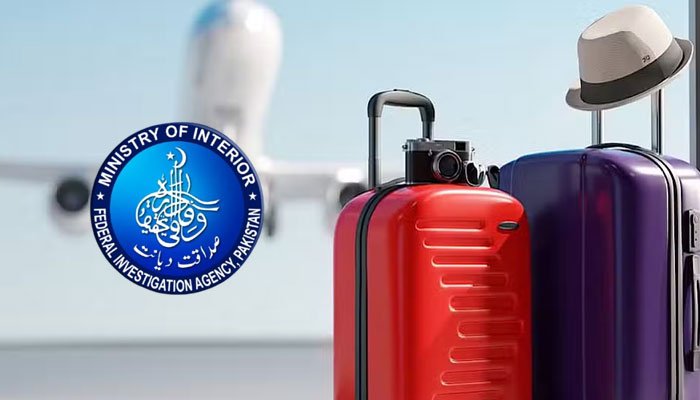The Directorate General of Post Clearance Audit (PCA) has uncovered one of Pakistan’s largest ever under-invoicing scandals involving the import of luxury vehicles. A recent audit revealed systematic exploitation of the customs clearance system that resulted in an alarming tax shortfall of Rs. 17.5 billion between December 2024 and March 2025.
The most glaring example? A 2023 Toyota Land Cruiser—imported from Japan—was shockingly cleared through customs for just Rs. 17,635, despite its actual market value exceeding Rs. 10 million.
Audit Uncovers Massive Discrepancies
According to the PCA’s comprehensive report, officials examined 1,335 Goods Declarations (GDs) submitted by various importers during the four-month audit period. The declared total import value across these entries stood at Rs. 670 million, while the actual assessed value was a whopping Rs. 7.25 billion.
This translates to a collective loss of Rs. 17.5 billion in import duties and taxes—an enormous financial blow to the national exchequer. And at the center of it all is the under-invoicing of high-end SUVs, with the Toyota Land Cruiser serving as the case in point for fraudulent declarations.
The Rs. 17,635 Land Cruiser That Should Have Cost Millions
In perhaps the most outrageous finding of the entire audit, the PCA flagged a 2023 Toyota Land Cruiser which was declared to customs at just Rs. 17,635. The actual assessed value of the vehicle was Rs. 10,049,868, according to standard import valuation tables.
The correct amount of customs duty and taxes on this import should have totaled Rs. 47.2 million. This one entry alone was under-invoiced by 99.8 percent, and similar patterns were observed in hundreds of other vehicle declarations.
Systemic Use of Informal Remittance Channels
The PCA report further noted that none of the importers involved provided valid evidence of foreign remittances—a legal requirement under State Bank of Pakistan (SBP) rules.
This strongly suggests the widespread use of informal financial networks such as hawala or hundi to purchase vehicles overseas. This not only violates foreign exchange laws, but also raises red flags for Trade-Based Money Laundering (TBML).
The auditors categorized this behavior as high-risk TBML, warning that it undermines Pakistan’s commitments to both the Financial Action Task Force (FATF) and the International Monetary Fund (IMF).
Link to Tax Evasion and Income Underreporting
The scandal doesn’t end with import fraud. Auditors noted a direct connection between under-invoicing and income tax evasion. Importers who declared luxury vehicles at just a fraction of their actual value also failed to report these high-value assets in their income tax filings.
This double-blow—evading both import duties and income taxes—creates a shadow economy that weakens Pakistan’s formal financial system and deters fair business practices.
Customs Officials Failed to Act
Despite the shocking discrepancies, customs officials at the Faceless Customs Assessment (FCA) units did not perform the required verifications. No substantial documentation was demanded from importers, even in cases where under-invoicing was blatant.
This regulatory negligence allowed importers to exploit the FCA system with little fear of consequence. The PCA stressed that this was not a loophole—it was systemic failure.
FBR and Other Bodies Launch Probes
Following the audit, the PCA forwarded its findings to:
- Federal Board of Revenue (FBR)
- State Bank of Pakistan (SBP)
- Financial Monitoring Unit (FMU)
Investigations are now underway to determine the extent of individual and institutional culpability. Legal proceedings, potential seizures, and retrospective tax recoveries are on the table.
Officials have also pledged to tighten compliance checks, introduce mandatory payment proof systems, and review the FCA protocols to prevent future abuse.
National and International Repercussions
The exposure of this Toyota Land Cruiser under-invoicing scam has global implications. With Pakistan still striving to maintain its FATF grey list exit status and rebuild investor confidence under the IMF’s financial discipline framework, such scandals severely compromise credibility.
Unchecked, this kind of trade-based fraud risks reversing years of compliance progress, drawing scrutiny from global watchdogs and financial institutions.
Read MORE: Riddara RD6 Electric Pickup Officially Launched in Pakistan 2025
Time for Reform and Transparency
This scandal highlights the urgent need for:
- Transparent valuation protocols for all high-value imports
- Digital tracking of payments and remittances
- Stricter enforcement of foreign exchange and taxation laws
- Independent audits and anti-fraud mechanisms
Only with aggressive policy enforcement and cross-agency collaboration can Pakistan prevent further loss to its treasury and restore accountability in luxury imports.





